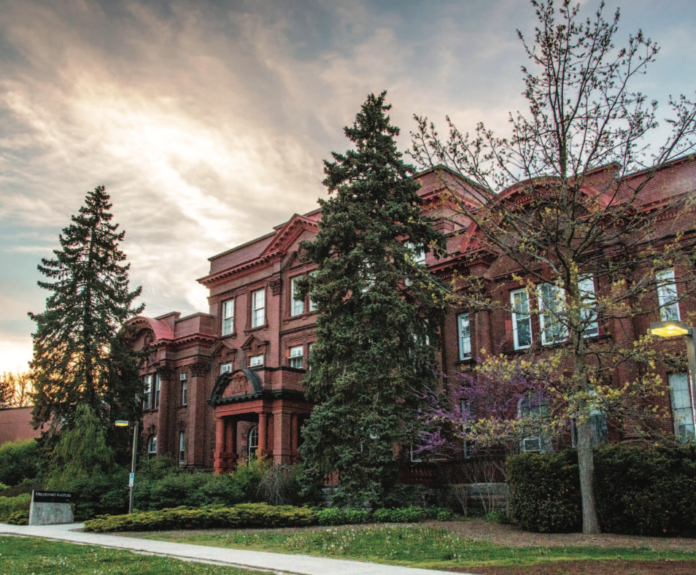
University and City Collaborate to Serve the Community
As public institutions, cities and universities play a pivotal role in shaping their communities. When these institutions work collaboratively to drive social and public innovation, they can significantly expand the depth and scope of their impact. Remarkable evidence of this is seen in Guelph Lab, a joint initiative of the University of Guelph (UofG), and the City of Guelph. The Lab brings together municipal, community, and university expertise and knowledge to address community needs. Its contributions to important issues – from public sector procurement to the sharing economy – have been recognized across Canada.
What is the Guelph Lab – An Overview
It is a “Public Innovation” Lab that started in 2015 as a partnership in which university staff, faculty, and students work with City staff to proactively improve municipal operations and support innovative practices in service delivery. The Lab, housed at the University’s Community Engaged Scholarship Institute (CESI), is one of a number of units on campus that works with community groups to drive change. From applied research opportunities for students, to water conservation technology for citizens, the Lab shapes the future of the city in unprecedented ways.
Sam Laban, Guelph Lab facilitator, explains succinctly: “We’re focused on innovation in local government, and work on topics like procurement, budgeting, and the sharing economy.There are a growing number of Public Innovation Labs, but while many of the emerging campus-based Labs are located in business schools, we’re based in a college of social sciences. We’ve worked with political scientists and sociologists, as well as with researchers in public health, geography, and psychology. And really, who better to help uncover what makes our community tick? If you are trying to meet local needs, how will you uncover what actually needs to change? We believe social scientists can help, and Guelph Lab is proving this to be true.”
Public and Social Innovation through Collaboration
The Lab’s primary objective is to bring together municipal, university and community expertise and experiences to address important community issues that require some form of government intervention. Under the aegis of the Lab, UofG students and staff work with City staff to design, test and implement projects.
The projects blend research, design, and experimentation. Currently, project teams are looking at City procurement practices, taxis and ride- sharing, and ways to assess the health of the downtown.
Early Accomplishments
As facilitator, Sam Laban proudly shares success stories marking the Lab’s 3 years since inception. He is cognizant though, of the tasks ahead.“I was part of a team that wrote an early “Guide” on Innovation Labs and in Guelph we’ve been able to put that theory into practice. I’m excited about the projects we’ve launched already, but I also know lasting impact takes time.What we have now is the capacity and experience to plant more of these “seeds” and to support them to achieve lasting and broad impact with and for this community.”
The Lab has met with success on several complex projects such as:
Procurement Lab: In operation for 2+ years, this Lab conducts extensive research, analysis, and prototyping to improve City procurement processes.
Civic Accelerator: Developed out of the Procurement Lab, the Accelerator enables the City to work with technology companies to address pressing challenges, such as reducing residential water consumption by providing real-time smartphone alerts for residential water floods.
Sharing Economy: The Guelph Lab produced ‘Navigating the Sharing Economy:A Six-Decision Guide for Municipalities. ’Working with the Lab, students provided extensive research, conducting interviews with City staff and other experts, producing a list of resources, and preparing a scan of existing examples of municipal responses to the sharing economy.The Lab produced the first draft of the report and is pilot testing it as part of Guelph’s vehicle-for-hire bylaw review process.
Service Journey Mapping: Students did “user research” – e.g., riding along with citizens as they access City services – to support reviews and improvements in service delivery.
Looking Ahead…
The Guelph Lab takes on challenges that require action by the Municipality; this could be through changes in policy and bylaws, changes to internal processes, or the creation of services, programs, partnerships and/or the allocation of funding.While the Civic Accelerator has been awarded on a national level, several smaller projects have made a big difference in the community as well.
With so much happening, it is easy to foresee a bright future with Guelph Lab leading the way for social and public innovation to benefit the community of Guelph.
Read the full feature on living, working, and doing business in the City of Guelph through our latest Globe & Mail insert here.















